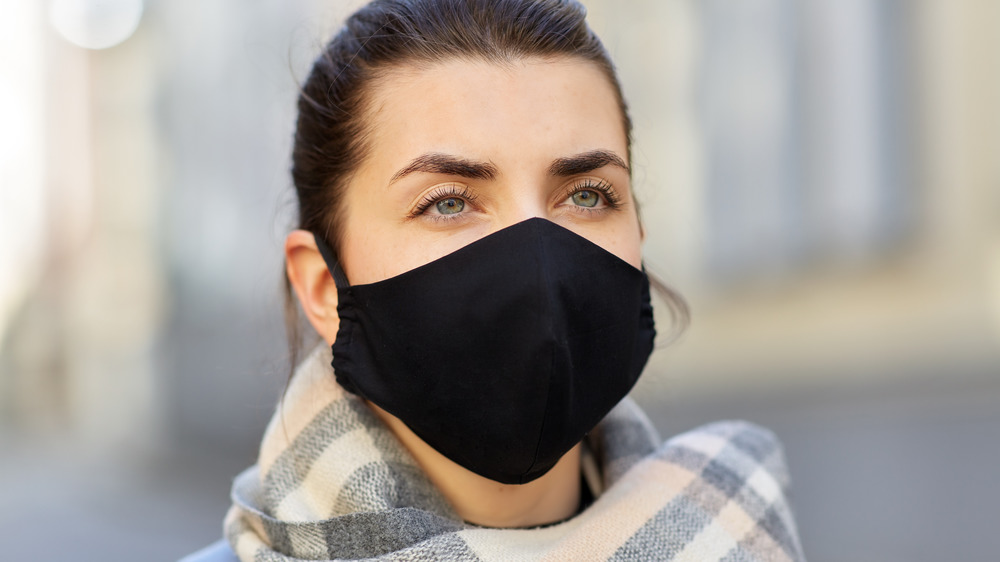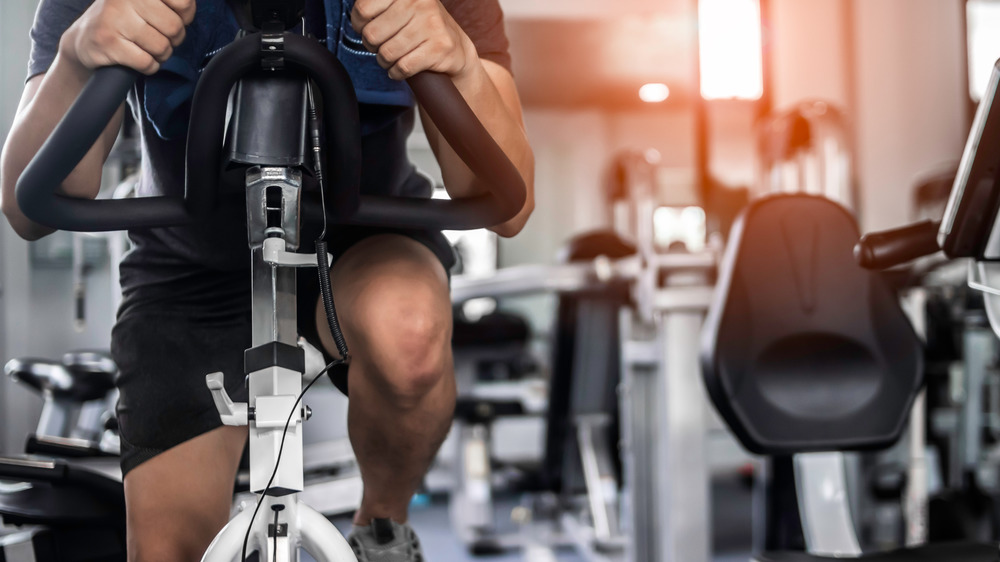Does Antibacterial Clothing Really Keep You Healthy?
From masks to shorts to sports bras to socks, antibacterial and antimicrobial clothing has been trending in the last year. Even before the COVID-19 pandemic, though, brands marketed antibacterial clothing largely towards athletes, who will often leap at any material designed to keep them healthier while potentially reducing odors. But does antibacterial clothing really work? It depends on what you're hoping it will do.
Antimicrobial gym clothes that claim to trap odor and bacteria in the fabric have been on the market for more than a decade. They make no claims around their ability to help a cyclist or runner avoid contracting COVID-19, but they do promise you'll smell better after your workout, and potentially be less prone to yeast infections caused from bacteria stewing in workout gear in sensitive areas like the groin (via GQ).
But this new iteration of antibacterial clothing is all about helping consumers avoid contracting COVID-19, by imbuing fabrics with things like silver, copper, and in some cases, even essential oils like peppermint. Other than making your jeans smell minty fresh, will this do any good against a virus? Probably not, experts say (via Vox).
What can antibacterial clothing do?
Since COVID-19 is an airborne virus, it's unlikely that your jeans being antibacterial will protect you, chic as they might look. In fact, if you're feeling confident that your clothes are basically your armor, you risk becoming overconfident. "People might put their guards down under the 'safety' and 'protection' of these articles of clothing," surgeon Gan Eng Cern told Real Simple. "Frontline health workers put on layers and layers of medical-grade protective gear, but some still fall prey to the virus. It's a relentless and unforgiving pandemic and wearing antiviral clothing won't guarantee your immunity from it."
So save the antibacterial and antimicrobial fabrics for when you're hoping to smell just a little less bad post-workout. Ultimately, washing your clothes regularly is probably the best way to beat bacteria. "There's a lot of selling of products, based off fear, that really aren't going to be effective," Saskia Popescu, an infectious disease epidemiologist, told Vox. "I would rather people be vigilant in masking, distancing, hand hygiene, cleaning and disinfection, and avoiding crowded indoor settings."


